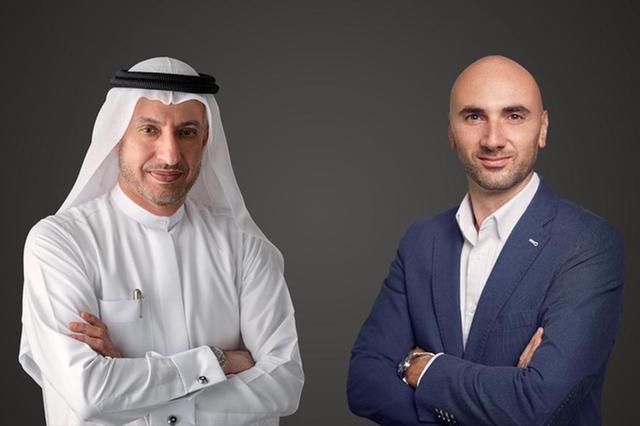The global pandemic, combined with the accelerated adoption of digital technologies, has driven significant shifts in B2B e-commerce and the retail sector in Dubai, leading to the city reinforcing its position as a leading regional and global trading and commercial hub. The shifts are exemplified by a new trading trend that has emerged among companies in the Dubai Integrated Economic Zones (DIEZ) as part of which businesses are partnering with third-party logistics providers to streamline their supply chain processes and sell their products to customers. A new business-to-business-to-customer (B2B2C) model is seeing entrepreneurs increasingly bulk buying products and re-selling them across different direct-to-consumer channels, giving them generous profit margins and ease of operations.
The new trends have been accelerated by proactive initiatives implemented by Dubai and the UAE to promote the rapid adoption of digital solutions. Furthermore, with newly updated business laws and regulations, it is now easier for businesses to conduct e-commerce in the country.
New studies reveal how unprecedented challenges brought by the global pandemic together with rapid digitisation have driven the growth of business-to-business (B2B) e-commerce.
According to the studies, 82% of companies intend to increase the use of B2B e-commerce and 86% of businesses feel technology is the sector that will assume greater significance in the future, followed by the e-commerce sector at 84%.
Tradeling, a hyper-growing e-marketplace focused on B2B transactions in the MENA region, is one example of a company that has recorded exceptional revenue growth of more than 35% month on month, with a product selection reaching close to one million. Today, Tradeling has over 150,000 registered buyers and sellers from over 55 countries and has seen a notable 100,000 requests for quotations and inquiries. Since its inception in 2020, the company has been actively facilitating warehouse storage management, trade finance, product inspections, and last-mile delivery to any location desired by the customer.
His Excellency Dr. Mohammed Al Zarooni, Executive Chairman of the Dubai Integrated Economic Zones Authority (DIEZ), said: “Through its three free zones, the Dubai Integrated Economic Zones Authority has been working to develop a sustainable economic system that boosts the economic growth of the emirate and strengthens its pioneering position in adopting solutions and launching digital platforms that enhance the performance of small and medium-sized businesses. Tradeling is one such initiative that has was launched with a forward-looking vision that focuses on digital excellence within a flexible economic environment that fosters business development.
“Through various initiatives, projects, and solutions, we seek to provide a unique, world-class approach that supports the growth of businesses and companies, in line with the vision of the leadership to create a vibrant ecosystem characterised by the diversity of investment fields, the simplicity of conducting businesses and the highest levels of competitiveness. The e-commerce sector and B2B trade are among the most prominent focus areas within the Authority’s strategy in the next phase, given the great economic and investment capabilities and opportunities that it provides as well as the increased adoption of the digital-first mentality by companies that aspire to expand in this field in the future,” Dr. Zarooni added.
Marius Ciavola, Chief Executive Officer at Tradeling, said: “B2B e-commerce transactions in the Middle East & North Africa region make up only one percent or even less than that of a $1 trillion sized global market, that’s quite an insignificant size given the kind of potential B2B online deals has in these markets. Our aim is to push that percentage to 4% – 5% and make it into a $50 billion size business. We are also on a mission to transform the way B2B trade is conducted to become digital-first, eliminating hassles and simplifying the process for buyers and sellers alike. The region’s growth potentials are huge and we are barely scratching the surface.”
“Tradeling is in a unique position to shape the future of trade, and we are very fortunate to have the backing of DIEZ from the start of our journey till date. DIEZ enabled us to unlock a number of collaboration opportunities and accelerate our growth plans, all while trusting our team of start-up builders to carry the load and operate as a privately-owned business,” Ciavola said.
The establishment of Tradeling was inspired by the Dubai Government’s 10x initiative, which seeks to place the city ten years ahead of other leading global cities. With the support of DIEZ, Tradeling works to create innovative solutions that meet the aspirations of customers across various vital industries.
DIEZ contributes to 11% of Dubai’s overall trade volume and has witnessed an 8.3% growth in new sales revenues since the beginning of 2022, as well as a 24% rise in the leased areas compared to the same period in 2021. DIEZ also saw an 88.4% increase in the number of registered companies compared to the same period in 2020, with a 23.5% increase in multinational company registrations.
DIEZ, which is home to 5,000 companies, plays a key role in the UAE’s efforts to promote economic diversification, contributing 5% to Dubai’s GDP.

